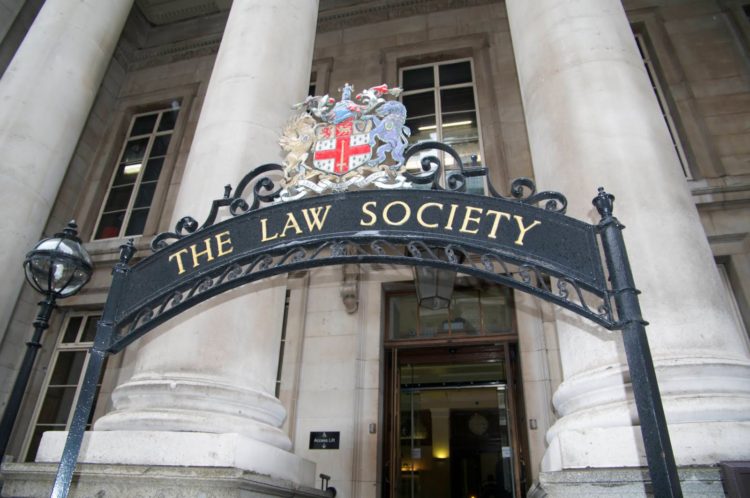By Victoria Mckeown-
New research conducted during Justice Week 2021 by The Law Society shows UK citizens place equal value on the law to protect health as to protect rights and freedoms even during the pandemic, the legal professions of England and Wales said as they published the results of a rights health-check.
The research, carried out by two other legal bodies, including the Bar Council and The Chartered Institute of Legal Executives, suggests widespread discomfort about the state of democracy in the UK.
A spokesperson from The Law Society told The Eye Of Media.Com that the findings of the research confirms the importance that the mechanisms of the rule of law functioned correctly to ensure that justice was served timely.
75% of those surveyed said living in a democracy is important, fewer than half of those spoken to agreed our democracy is working well.
Less than one in five said democracy is getting better and a worrying 41% said it is getting harder to enforce rights.’
While three quarters of respondents said living in a democracy is important, fewer than 50% felt the UK democracy is working well, the joint legal body said.
Less than 20% of those surveyed said democracy is getting better, and a worrying 41% said it is getting harder to enforce rights.’
The joint bodies concluded the public felt the rule of law was being compromised during the pandemic.
Restriction Of Freedoms
The British government have restricted the freedoms of the public during the pandemic as part of the Coronavirus Act 2020, to prevent the spread of Covid-19 infections. Most world governments have done the same in an attempt to beat the virus.
However, there are growing members of the public who feel the rule of law is not properly being followed in lockdown restrictions. The interpretation of that Act has been the subject of debate, while there are also sections of the public who are happy with the working of the democracy.
Many respondents expressed doubts that politicians understand how the law works, and a large section indicated that the media should explain the law more,
Backseat
“People don’t expect the rule of law to take a backseat in a time of national emergency,” the leaders of the three branches of the legal profession said in a joint statement.
“As measures to control the pandemic affect so many aspects of our lives, it’s disheartening to know that there is no evidence people think the law should protect health at the expense of rights and freedoms.
“We don’t know when or how we will emerge from the eye of the COVID-19 storm, but as we do it is vital the many layers limiting rights and freedoms that have been put in place are peeled back.”
Obedience To Law
Four out of every five people said it is important that government obeys the law, rising to almost nine in 10 of the over 55s.
In line with this, three quarters of respondents (75%) said it is important or very important that politicians understand how the law works, although just 46% agreed that politicians generally understand how the law works’ (up from 39% in 2020).
In terms of understanding how the law works, 60% of those interviewed said this is important, 22%, said it was important that schools teach the law, and 30% said the media explains how the law and courts work.
Over two thirds of people surveyed said after the pandemic it is important people have the same ability to uphold their rights and access legal advice as they did before.
Underfunding
Researchers said the pandemic has ”hamstrung a justice system that was already suffering from years of underfunding”.
They added that the capacity of courts and tribunals capacity was further reduced because of the need for social distancing and 56,000 cases are now in a queue for the Crown Court which stretches into 2023. 73% of the public said they were concerned about this backlog in the criminal courts.
The legal leaders added: “Justice Week aims to help people understand how the law works so they can be more actively engaged with the justice system and democratic processes.
“Some of the concerning findings from this poll may stem in part from restrictions on our freedoms to control the pandemic and the fact that during lockdown some of the most vulnerable citizens – those at risk of domestic violence, people living in care homes – have struggled to access justice when they have most needed it.
“As we emerge from lockdown government would do well to look to restore confidence in democracy and bolster the beleaguered justice system so people can access legal advice to protect and uphold their rights in times of need.”
Some restrictions of our freedoms are inevitable in a pandemic, but it is absolutely important that such restrictions do not last longer than necessary, and we do not forget that our rights to basic freedom are not curtailed for too long.
Also important is for the law to be reasonably accessible, making it important for even secondary schools to teach students about various aspects of the law, and not leave that duty to university lecturers for the exclusive benefit of law students.
Reasonableness
One legal expert who opted for anonymity also told this publication that it is crucial for government’s not only to make laws, but to be seen to make laws which are just, fair, and reasonable.
Government’s also must remember that the rule of law requires fairness, consistency, and reliability. Laws that change all the time, especially in the form of U turns in a pandemic, is not consistent with the rule of law.
Laws must be sufficiently reliable and consistent in its principles.
Frequent U turns in a pandemic is not consistent with the rule of law.




